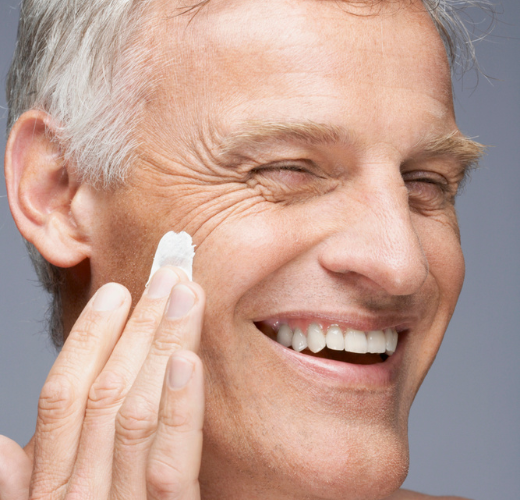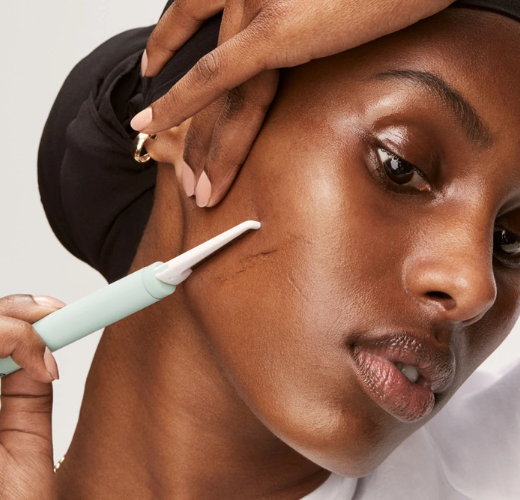Can We Talk about UV Safety?

According to People, influencers such as Riley Check @holisticgrenade and Gubba Homestead are spreading lies about the safety of sunscreen and stating that it causes cancer,but they clearly have it wrong. Ultraviolet (UV) radiation causes cancer, not sunscreen.
Protecting Your Skin from Harmful UV Rays
Prolonged exposure to UV rays can lead to various skin issues, including sunburn, premature aging (i.e. wrinkles and hyperpigmentation), and skin cancer. Implementing a comprehensive sun protection strategy is crucial for maintaining healthy skin. In addition, there have been studies illustrating that ultraviolet radiation worsens acne, eczema and other inflammatory conditions.
Importance of Wearing Sunglasses
Sunglasses are more than a fashion accessory; they protect your eyes from harmful UV rays. UV exposure can lead to cataracts, macular degeneration, and other eye conditions. Sunglasses blocking 99-100% of UVA and UVB rays significantly reduce the risk of eye damage.
Hats and UPF Shirts
Wearing a wide-brimmed hat can provide shade and reduce UV exposure to the face, neck, and ears. Additionally, clothing with an Ultraviolet Protection Factor (UPF) offers a protective barrier against UV rays. A UPF rating indicates how effectively a fabric blocks UV radiation. Certain detergents such as Sunguard Laundry Aid and Rit Sun Guard can add UPF to clothing. For example, Rit Sun guard can take a UPF 5 to a UPF 30 which is pretty impressive and it can last through 20 washings.
Sunscreen
Applying broad-spectrum sunscreen with an SPF of 30 or higher is crucial for protecting exposed skin. Sunscreen should be reapplied every two hours and after swimming or sweating. Consistent use of sunscreen can significantly lower the incidence of both non-melanoma and melanoma skin cancers as well as signs of aging.
Polypodium Leucotomos
Polypodium leucotomos, a tropical fern, has been shown to offer photoprotective benefits. This natural supplement can reduce UV-induced damage and has antioxidant properties. I highly recommend this to everyone, especially my patients with Melasma.
Annual Skin Checks
Regular skin examinations by a dermatologist are vital for early detection of skin cancer. Annual skin checks can help identify suspicious moles or lesions early, increasing the chances of successful treatment.
Non-Melanoma Skin Cancer and Skin Cancer
Non-melanoma skin cancers, such as basal cell carcinoma and squamous cell carcinoma, are the most common skin cancers. While they are less likely to spread than melanoma, they can cause significant damage and disfigurement if not treated promptly. Melanoma, though less common, is more dangerous due to its ability to spread to other parts of the body.
This summer, follow the above tips to ensure that you are being safe in the sun. Wearing sunglasses, hats, UPF clothing, and applying sunscreen are essential steps in your sun protection strategy. Additionally, considering supplements like Polypodium leucotomos and scheduling annual skin checks can further enhance your defense against skin cancer.
Stay safe Derm Babes!
References:
Int J Mol Sci. 2021 Apr; 22(8): 3974. Published online 2021 Apr 12. doi: 10.3390/ijms22083974. PMCID: PMC8069861. PMID: 33921444
Inflammatory Molecules Associated with Ultraviolet Radiation-Mediated Skin Aging
Tuba M. Ansary, Md. Razib Hossain, Koji Kamiya, Mayumi Komine,* and Mamitaro Ohtsuki
https://www.aao.org/newsroom/news-releases/detail/sunglasses-your-prescription-eye-health


